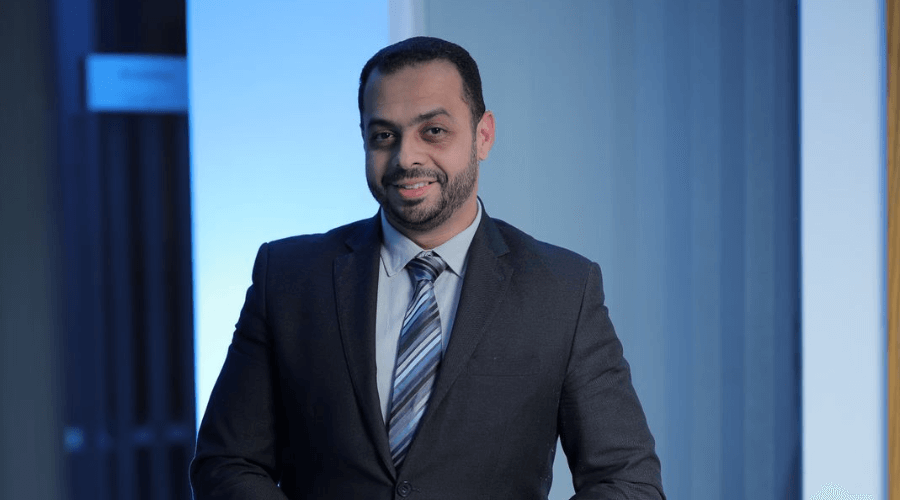Nawah Scientific: Pivoting its way to expansion

Startups go through several changes within their first few years in operation as founders struggle to find and validate their product market fit due to increasingly challenging and ever evolving economic conditions. The latest example of this is Nawah Scientific, an Egypt-based life science startup, whose business strategy has been repeatedly punctuated by rebounds and pivots.
Founded in 2015 by Omar Sakr, Nawah started off as an independent, privately-owned physical science laboratory to help scientists access equipment and perform research work in life sciences and related fields. Given the shortage in scientific research related opportunities, the startup quickly started to attract and onboard science graduates, aiding in spanning the gap between education and employment for both hundreds of established scientists and young professionals.
Two years after launching its operations, Sakr decided to develop his startup into a fully cloud-based lab to provide its services all over the country and lure customers from regional markets as well. The company then shifted its focus to the B2B segment, targeting the pharmaceutical sector, food and beverage and agriculture, which now represents 80 per cent of its revenues. The startup claims to have processed more than 300,000 samples to date.
"Throughout our almost seven-year journey, we have been able to adjust with several changes, the latest of which was to focus on the industry segment,” says Sakr. “We realised that people are becoming very price sensitive, with priority given to fulfilling daily life necessities, and the truth is scientific research is not one of them. So, we decided to make inroads into the industries that rely on continuous research and development (R&D) and routine analysis such as pharmaceuticals.”
Expansion plans
The cloud-based platform that Nawah has built allows customers to request sample analysis online regardless of their location, which has enabled the company to attract customers from markets outside Egypt. It initially expanded to Jordan last year and then to Saudi Arabia this year, but its list of target markets, however, keeps changing apace with business priorities.
"For most local startups looking to spread their proverbial wings, the Gulf countries are the most obvious choice. We changed focus to Africa, where the market dynamics are very similar to Egypt. So our expansion strategy is becoming more Africa-oriented rather than Middle East-oriented. After Jordan and Saudi Arabia, our next destination is Nigeria," explains Sakr.
For Nawah, Jordan has been an optimal testbed for its product outside its home market without cash outlay while offering room for advancement and growth, particularly in the pharmaceutical space. But the Saudi market, where Nawah plans to build a “mega lab”, boasts a strong purchasing power with higher monetary value. The startup’s sweet spot in Saudi Arabia is offering quality services at considerably lower prices compared to its global competitors.
“Jordan has consistently maintained a dominant position in the pharmaceutical production and distribution space. It serves the needs of its neighbouring countries including Iraq and the Levant countries in terms of production,” says Sakr. “Being in Jordan will help us gain more experience and refine our product market fit. Meanwhile, Saudi Arabia now has the biggest market in the Gulf area when it comes to scientific research, playing host to scientific research centres. We already have been dealing with Saudi clients for years, but this time we are coming up with a lab to serve both the universities and the corporate segment.”
These expansion plans are part of a broader strategy for the startup to pull off an exit by the year 2027.
Fundraising
Similar to other startups in Egypt, Nawah has also been grappling with a unique confluence of ongoing import restrictions, currency devaluations and declining purchasing power. In order to cope, it raised its prices in the last quarter by 25 per cent.
However, the relative lack of investor interest in the sphere of scientific research has so far been its biggest challenge. That has led the startup to seek investors from abroad. Nawah has so far raised $3 million across nine deals and is currently in the process of completing its Series A round.
"Our work relies mainly on imported spare parts, so there's been a lot of pressure facing us in pursuit of survival. You are stuck choosing between having to adjust to the new economic reality and cutting costs to ride things out. Still, fundraising remains our biggest challenge,” says Sakr.
"Investors from the region seem to be less interested in unconventional models like ours, because it is difficult to assess KPIs. So they choose to back business models that they are familiar with and know the nuances of. We could have geographically spread much faster than this if we could secure more money. Yet, we managed through quick expansion in maintaining high year-over-year growth rates and achieving profitability," he adds.
The lack of fundraising has undoubtedly cast a shadow on Nawah and similar companies, however Sakr expects a rise in activity as many immigrant scientists are now returning to their home countries from abroad for either family reasons or because they went out of a job during the pandemic.
"That is a trend that is likely to shape the life sciences sector in the region. Most of these returned scientists will be looking to launch their own venture to pursue their career aspirations,” he says. “I think Saudi Arabia will lead the pack on this front thanks to the likes of King Abdullah University of Science (KAUST) accelerator programme and Dammam Valley Fund, which focuses on backing projects in biotechnology.”


